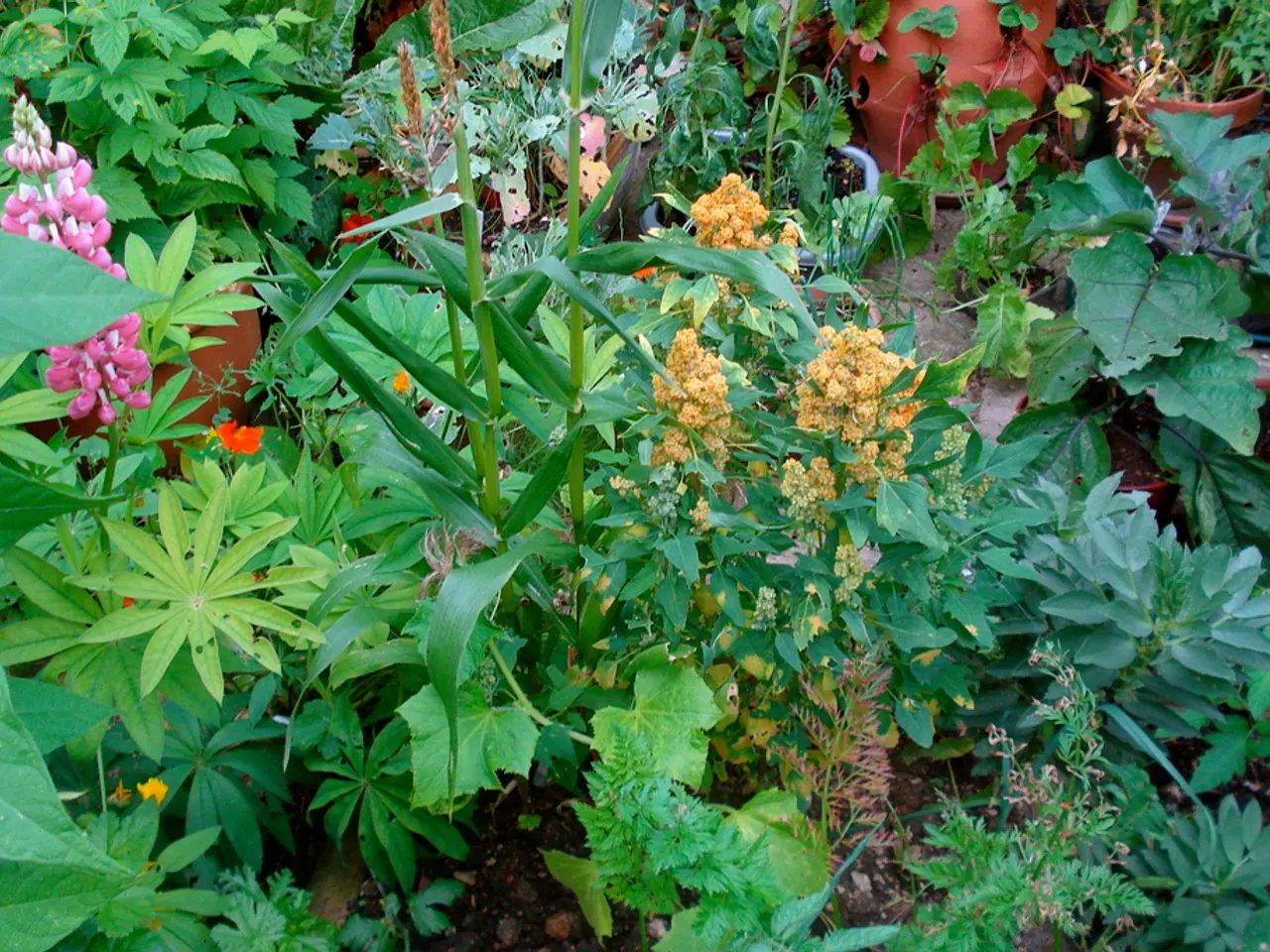Guide for Nurturing Herbs without Chemicals
In the pursuit of a thriving herb garden, maintaining a chemical-free environment is key. Proper airflow, healthy soil, and the right growing practices can optimize sunlight absorption, reduce humidity, destroy pathogens, and promote the growth of beneficial garden critters.
Growing herbs in containers is a great way to minimize the risk of infestation and diseases. By controlling the soil quality and facilitating easy plant rotation, you can keep your herbs healthy and disease-free.
Crop rotation, a technique used since the Middle Ages, is another essential practice. Moving crops to different areas of the garden each season helps maintain soil health and prevent the buildup of pests and diseases.
Understanding your plants' growing needs is crucial. To grow herbs organically, focus on preventing problems before they happen and addressing specific issues instead of using broad solutions.
Raised beds can help control the quality of soil, protect crops from burrowing pests and insects, and improve drainage. Fertilizers should be added sparingly, as excessive fertilizing can lead to excessive leaf growth and a weaker flavor or aroma in herbs.
Companion planting is another effective method for promoting herb growth. By growing different varieties of plants closely together, you can enhance each other's growth and protect them from pests, diseases, and infestations.
Healthy, nutrient-dense soil is critical to growing pest-resistant herbs. Beneficial garden critters like earthworms thrive in rich soil, helping to maintain a balanced ecosystem. Most herbs require at least 6 to 8 hours of regular sun exposure for optimal growth.
Regular harvesting encourages plant heartiness and steady growth in herb gardens. Herbs that are hard to kill, native to the local area, or thrive indoors are ideal for an easy-to-maintain and disease-resistant herb garden.
Organic mulch or a weak solution of fish emulsion can be used as organic fertilizers for herb gardens. Building an herb garden without chemicals is more affordable and easier than it may seem, as long as common garden issues are addressed promptly.
To effectively grow herbs organically, focus on healthy, nutrient-rich soil, use organic compost and natural fertilizers, practice crop rotation and companion planting, and encourage beneficial insects to control pests naturally. Avoid synthetic chemicals and maintain good plant health through proper watering, pruning, and sunlight to help herbs resist diseases.
Key organic practices include soil preparation, natural fertilizers, pest and disease management, regular maintenance, and sustainable methods. For those wanting to avoid all animal-derived inputs, vegan organic gardening practices rely solely on plant-based composts and natural ecosystem encouragement.
By combining these methods—healthy soil stewardship, natural pest control, proper herb-specific care, and organic amendments—you ensure robust herb growth while maintaining an eco-friendly garden free of synthetic chemicals.
Growing crops organically is the best way to enjoy the health benefits of produce without worrying about toxic compounds ending up on your plate. Herbs can be grown in small pots or in-ground, depending on preference, and should be amended with organic fertilizers as needed to ensure proper nutrient levels.
Composting can be used to create fertile soil at an affordable cost. Organic fertilizers, made from biodegradable compounds like manure, kitchen waste, and garden waste, enrich the soil with important nutrients for plant growth.
Embrace the organic lifestyle and enjoy a bountiful herb garden free of synthetic chemicals!
- In addition to maintaining a chemical-free herb garden, using organic mulch such as compost or a weak solution of fish emulsion can serve as organic fertilizers.
- Growing herbs in raised beds not only ensures proper drainage but also helps control the quality of soil, providing an ideal environment for earthworms, which thrive in rich soil and promote a balanced ecosystem.
- To deter pests and diseases, combining companion planting with crop rotation strategies can encourage beneficial garden critters and help protect herbs naturally.
- The practice of vegan organic gardening focuses solely on plant-based composts and natural ecosystem encouragement, offering an alternative to methods that rely on animal-derived inputs.




